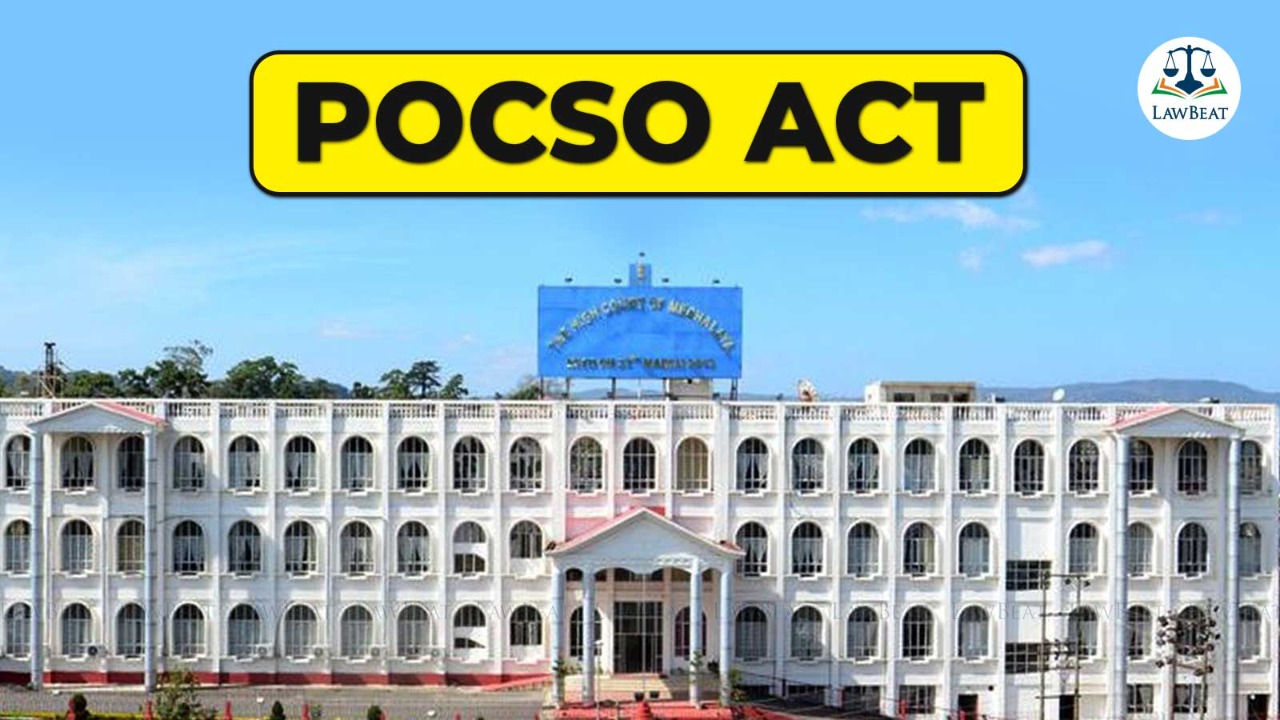Mutual Love & Affection Between Young Boyfriend & Girlfriend Not Sexual Assault Under POCSO Act: Meghalaya HC

The High Court took an exception looking at the peculiar facts of the case and quashed the proceedings exercising their inherent powers on the grounds that there was mutual love and affection between the minor girl and the accused.
A Single Judge Bench of Meghalaya High Court comprising Justice W. Diengdoh has held that for the act of mutual love and affection between boyfriend and girlfriend, if both of them are still very young, then the term ‘sexual assault’ as could be understood under the POCSO Act cannot be attributed.
The case pertains to an FIR that was lodged against petitioner no.1 (accused) under the POCSO Act by the mother of the minor girl complaining that her minor daughter was sexually assaulted by the petitioner No.1 on two occasions that is, on 11.12.2020 and 16.12.2020. The FIR was filed after the mother was informed that her minor daughter was found absent from her room by the teacher of the school where she was studying.
However, based on the material placed on record and the investigation conducted it was found that the minor daughter of petitioner No.2 (Mother) was having an affair with petitioner No.1 (Accused).
The counsel for the petitioner submitted that the girl in her statement recorded under Section 161 and Section 164 CrPc stated that she went with petitioner No.1 on 11.12.2020 and was in a physical relationship with him inside his vehicle on the said date. Further, on 16.12.2020 when they met once again they were involved in a physical relationship inside his vehicle. He also informed the court that the minor girl in her statement had said that the petitioner was her boyfriend and that her relationship with him was consensual and of her own free will.
The Investigating Officer had, however, filed the charge sheet and came to a finding that there was prima facie evidence against petitioner No.1 to book him under the provisions of the POCSO Act.
The High Court took note of the fact that Petitioner No. 1 (Accused) and Petitioner No. 2 (Mother) had jointly filed the application for quashing of FIR and proceedings, which reflected the bonafide of the petitioners.
The court while distinguishing between a good touch and bad touch and explaining the intent of the lawmakers noted:
“In a case of rape or sexual assault, the act not only affects the physical well being of the victim but would also leave a very deep emotional scar which would require prolonged counselling for the experience and the image to be erased from the mind of the victim. Such an act would have a more profound effect on a child. Therefore, the makers of the law have thought it fit to bring out very stringent provisions in the Protection of Children from Sexual Offences (POCSO) Act to arrest and to deter any inclination in this regard by a perpetrator. What is even prevalent now is, what is know as ‘good touch’ and ‘bad touch’ where even a semblance of sexual overtone in the way an alleged perpetrator touches a child victim will make him liable for prosecution under the relevant provisions of the law”
The Court while allowing the application and noting that mutual love and affection between a young boyfriend and girlfriend is not sexual assault said:
“The pitfall to the above proposition is that in a case where there is mutual love and affection between a child and a person which might even lead to a physical relationship, though the consent of the child under the law is immaterial as far as prosecution for an alleged offence of sexual assault is concerned, but considering the peculiar facts and circumstances of a particular case, such as in a case of a boyfriend and girlfriend particularly, if both of them are still very young, the term ‘sexual assault’ as could be understood under the POCSO Act cannot be attributed to an act where, there is, as pointed above, mutual love and affection between them.”
Case Title: Shri Silvestar Khonglah & Anr vs State of Meghalaya & Anr.
